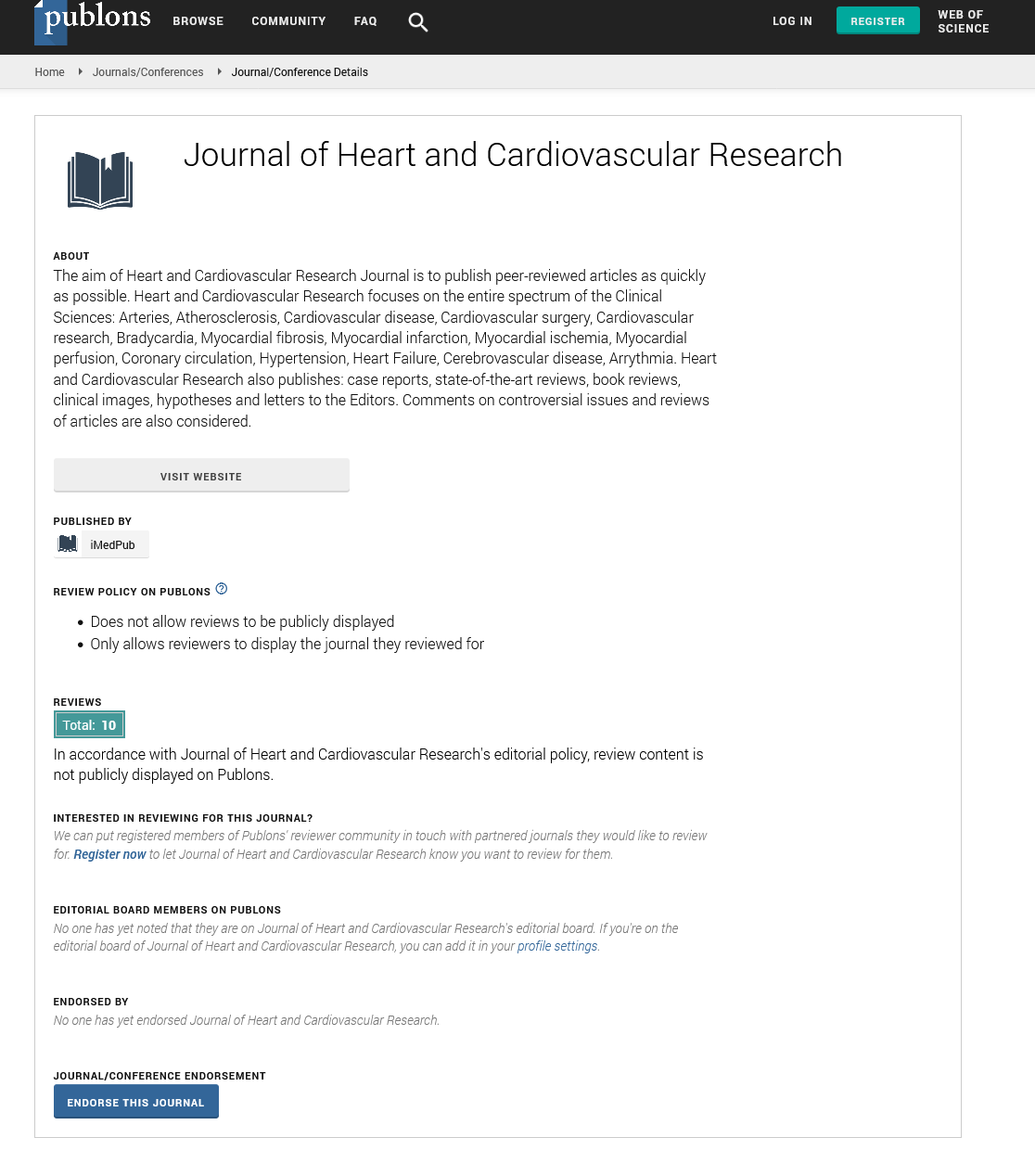ISSN : ISSN: 2576-1455
Journal of Heart and Cardiovascular Research
Abstract
Hypochlorite Raises Intracellular Free Ca2+ in Primary Cultured Smooth Muscle Cells of Rat Aorta: Participation of Cellular Signaling Pathways
It has been reported that the local concentration of hypochlorite potentially exceeds 100 µM/l under pathological conditions in vivo and could cause vasoconstriction and damage of blood vessels in the microcirculation. Hypochlorite is found in atherosclerotic lesions and has been implicated in a number of cardiovascular disease processes. During moderate inflammatory conditions, the concentration of hypochlorite can reach as high as 340 µM. Thus, hypochlorite might be implicated in some pathological conditions such as inflammatory diseases, hypertension, heart diseases and stroke. The present study was designed to investigate the effects of three different protein kinase C inhibitors (bisindolylmaleimide I, staurosporine and Gö6979), PD-098059 (an inhibitor of extracellular signal-regulated kinases), genistein (an inhibitor of protein tyrosine kinase) and wortmannin {an antagonist of phosphatidylinositol 3-kinases (PI3Ks)} on intracellular free Ca2+ ({Ca2+}i) in primary, cultured rat aortic smooth muscle cells exposed to hypochlorite. The present investigation represents the first demonstration, to our knowledge, that hypochlorite increases intracellular Ca2+ concentration (from approximately 78 ± 11.4 nM to 206.3 ± 23.8 nM) in rat aortic smooth muscle cells. All the protein kinase C inhibitors (PD-098059, genistein and wortmann) significantly inhibited the elevation in {Ca2+}i induced by hypochlorite at different concentrations of 200, 400 and 800 µM from control levels. Our data suggest that protein kinase C as well as extracellular signal-regulated kinases, protein tyrosine kinases and PI3Ks, may play essential roles in hypochlorite-triggered signal transduction pathways in vascular smooth muscle cells in both normal and pathological conditions.
Author(s): Jian-Ping Liu, Weimin Liu, Wenyan Li, Tao Zheng, Bella T Altura and Burton M Altura
Abstract | Full-Text | PDF
Share This Article
Google Scholar citation report
Citations : 34
Journal of Heart and Cardiovascular Research received 34 citations as per Google Scholar report
Journal of Heart and Cardiovascular Research peer review process verified at publons
Abstracted/Indexed in
- Google Scholar
- Sherpa Romeo
- China National Knowledge Infrastructure (CNKI)
- Publons
Open Access Journals
- Aquaculture & Veterinary Science
- Chemistry & Chemical Sciences
- Clinical Sciences
- Engineering
- General Science
- Genetics & Molecular Biology
- Health Care & Nursing
- Immunology & Microbiology
- Materials Science
- Mathematics & Physics
- Medical Sciences
- Neurology & Psychiatry
- Oncology & Cancer Science
- Pharmaceutical Sciences
